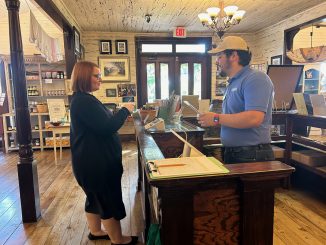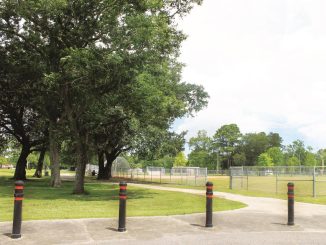
From 2005 to 2008, ten of the state’s largest refineries, two of which are in St. Charles Parish, reported over 2,000 accidents that resulted in the release of millions of pounds and gallons of pollutants near schools, waterways and neighborhoods, according to a report released by the Louisiana Bucket Brigade.
Almost a third of the 2,116 accidents occurred because of hurricanes or other bad weather events. In one case, wind gusts during Hurricane Cindy in 2005 knocked out power for several oil-processing units at Motiva in Norco. That resulted in the release of an 83,000-pound mix of toxic gasses into the air.
But some of the accidents also occur because of faulty or corroded equipment, according to Eric Parrie, a research associate for the Bucket Brigade’s report. On Oct. 4, 2008, over 2 million gallons of vacuum gas oil were released after the bottom of a tank corroded at Valero in Norco. Another incident was a July 2006 explosion and fire at Valero’s refinery that was triggered by a pipe break “associated with the uncommon long term corrosion patterns on top of the pipe,” according to a “Root Cause Failure Analysis” submitted to the state Department of Environmental Quality by Valero.
The result was the release of 5.97 tons of sulphur dioxide through five flares on the site.
The Bucket Brigade’s report is the first time that accidents like these, which are reported by the refineries to the LDEQ, have been compiled.
“What we’ve found is not a pretty picture,” Ann Rolfes, director of the Bucket Brigade, said. “But these refineries can improve, and we want this to be the first step in solving the problem.”
While both Motiva and Valero are two of the top refineries in the state, the amount of incidents they have reported is nowhere close to the number of accidents Exxon Mobil in Baton Rouge and Chalmette Refining in Chalmette have had from 2005 to 2008.
ExxonMobil had 456 total accidents during that span, while Chalmette Refining reported 393. Citgo Petroleum in Lake Charles is also near the top after reporting 339 accidents.
On the other hand, Motiva’s Norco facility only reported 86 accidents, while Valero reported 134.
But Parrie said that Motiva’s numbers have fluctuated greatly during that four-year span.
“In 2005 and 2006 they reported 36 and 29 accidents, respectively,” he said. “But in 2007, that number dropped to four.
“That seems unusual, and if they were able to reduce accidents by that much, they need to share with everyone how they were able to do that.”
The report kicks off what the environmental group calls a “refinery efficiency initiative,” in which it hopes to get refinery representatives to participate in a roundtable on accidents to discuss ways of reducing such emissions.
Rolfes said officials at several refineries have already agreed to a February meeting, as have representatives of the LDEQ.
Chalmette Refining and Murphy Oil, both in St. Bernard Parish, have declined the invitation, while Valero Refining in Norco has yet to respond either way.
“Valero has not yet decided whether it will participate in meetings set up by the Bucket Brigade,” Valero spokesman Bill Day said. “Since Valero bought the St. Charles refinery in 2003, emissions at the plant have been greatly reduced.”
The Bucket Brigade has been active in fighting releases of toxic materials by teaching local activists how to collect air samples. It was instrumental in a successful federal lawsuit by residents against Chalmette Refinery that led the company to agree to cut its emissions and resulted in the payment of more than $2 million to the Louisiana Fish and Wildlife Fund.
“We want to get all the refineries together so that we can all figure out ways to reduce these accidents,” he said. “Not only would this save them money by reducing accidents, but it would also limit the release of these pollutants.”




Be the first to comment